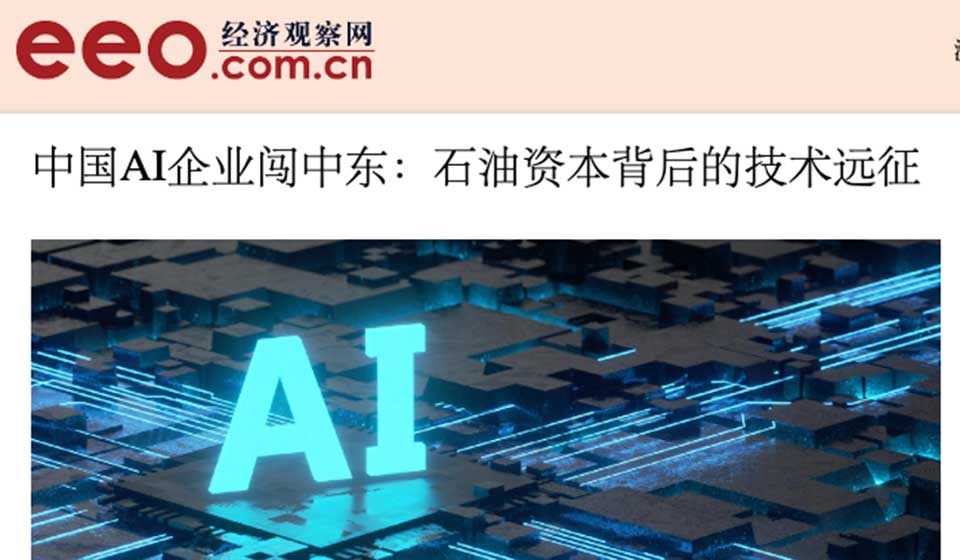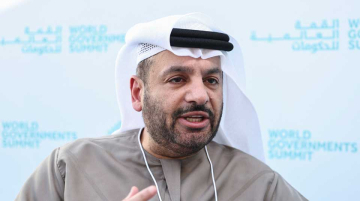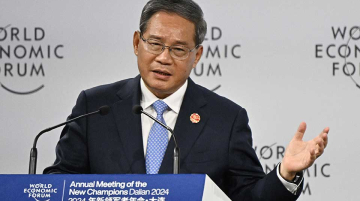
A recent feature in Economic Observer, a business news outlet, shows how Chinese AI companies, squeezed by fierce competition and a shrinking capital pool at home, are pivoting toward the Middle East, where deep-pocketed sovereign funds and ambitious digital transformation agendas are opening new doors.
The shift has been years in the making. From SenseTime opening an Abu Dhabi R&D center in 2019, to the emirate’s sovereign wealth fund investing in NIO in 2023, to Xiaoku Technology’s breakthrough partnership with Abu Dhabi Capital Group this August, Chinese tech firms have been steadily laying foundations across the region. Now, with Saudi Arabia’s Vision 2030 naming AI as a pillar of national transformation, the UAE targeting a 14% GDP contribution from AI within a decade, and Qatar launching a $5 billion fund to lure global AI players, the Middle East is becoming a crucial anchor for China’s AI globalization.
Chinese firms are learning to adapt technology to local cultural and regulatory norms:
- WeRide (文远知行) discovered that female passengers in Abu Dhabi were hesitant to use its robotaxis. The solution was a “Hijab mode”: smart-glass windows with adjustable transparency, independent rear-seat climate control, and a female-voiced assistant. These adjustments not only reassured riders but helped secure Saudi Arabia’s first autonomous driving license, driving Middle East revenues to 45.9 million yuan in Q2 2025.
- iiMake(慧新智能) made its push into Middle Eastern medical AI in early 2024 by pitching a hospital delivery robot to the Dubai Health Authority (DHA). The first demonstration backfired: the robot handed over medicine bottles with its palm facing upward, a gesture seen locally as disrespectful. The company quickly launched a “cultural embedding program”. It brought in advisers from the Mohammed bin Rashid Center for Cultural Understanding, integrated Quran recitations into the robot’s audio system, equipped the robots with headscarf-recognition features, and upgraded the disinfection module to give special attention to prayer mats. These adaptations convinced DHA of the company’s commitment to cultural sensitivity. In 2025, the two sides signed an agreement to jointly build AI-powered smart-hospital robots, giving Huixin a firm foothold in the region’s healthcare sector.
- Wonders Information Co (万达信息) secured its foothold in the Middle East by excelling in data compliance during a smart-hospital project. In a Riyadh smart-hospital project, it deployed distributed data-processing tools that ensured patient data stayed on local servers while anonymized records fed AI models. Its encryption system passed both Saudi Arabia’s Data Sovereignty Governance and the UAE’s Gulf Cooperation Council certifications, reducing data-leak risks by 90% and earning deployments in 12 hospitals. An executive told Economic Observer that compliance costs consume 25% of project budgets, but “skipping them means dead ends.”
Why Is This Important?
At home, China’s AI sector faces shrinking valuations and a collapse in venture funding—domestic AI fundraising has fallen more than 50% since 2023, with startups seeing valuations cut by 40%. Western capital, once active in Chinese tech, has largely retreated. In contrast, Gulf sovereign funds are committing billions: Saudi Arabia’s PIF alone has pledged $72 billion to AI infrastructure over the next five years. For Chinese firms caught between domestic headwinds and Western restrictions, Middle Eastern markets and capital are fast becoming a lifeline. This article not only highlights the trend but also dissects how Chinese AI companies embed cultural respect into design and meet stringent data-sovereignty rules to gain market entry.






